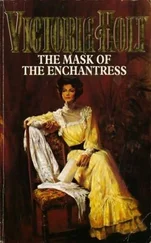Since her marriage she had been living with her parents, sometimes at the court of Nérac, sometimes at Pau; and there had been one or two journeys to the greater court of King Francis. Jeanne had at last enjoyed the companionship with her mother for which she had always craved, and the three years had been spent mainly in study under the great sages, Farel and Roussel. Jeanne was quick and clever, although her lack of artistic taste exasperated her mother; she had not followed Marguerite’s leanings towards the Reformed Faith and had remained a Catholic, as was her father. She adored her mother, but she was inclined to be a little impatient with her at times, for it seemed to Jeanne that Marguerite was too literary, too ready to see many sides to a question; her prevaricating nature was out of harmony with Jeanne’s forthright one, and while idealising her mother, Jeanne found herself more in sympathy with the rougher ways of her father. Henry of Navarre had not the grace and charm which Marguerite had learned in her brother’s court when she had reigned with him as Queen in all but name. Henry was coarse in manner and as forthright as Jeanne herself, so it was small wonder that his daughter had an honest respect for him.
As long as Jeanne lived she would never forget the occasion when he had come into her mother’s apartment and found them at prayers. Roussel and Farel had been present, but they had been able to make their escape. Henry of Navarre’s veins had stood out on his forehead, for he was very angry to find his daughter being initiated into the ways of the Protestants. He slapped Queen Marguerite on the cheek, an act which was later going to bring a sharp reproof from the King of France, and then he turned to Jeanne. He did not have to worry about the results of chastising her . He called for a rod and, while it was being brought to him, he told her that she was about to receive the severest whipping of her life, and that its object was to teach her never again to worry her addled head about the doctrines of religion. She would, in future, worship as he had worshipped and as his father had before him.
And there and then he threw her across a stool and belaboured her, while she lay, her lips tightly pressed together, forbearing to cry out, for she knew that if she did he would only lay on the more, since he detested what he called snivelling girls. But when he had tired himself he warned her that if ever he found her at such tricks again, though she were a woman by that time, she would be beaten to the point of death.
She bowed her head and said: ‘I will remember, Father.’
After that her mother never tried to interest her in the Reformed Faith, though she herself went on with her studies.
Life during those years had been pleasant for Jeanne – so pleasant that she almost forgot that she was married to the Duke of Clèves; she had longed to live with her parents in her native Béarn, and for three years this joy had been hers.
And so she came to that wonderful year.
It was also a wonderful year for Catherine the Dauphine, for one bleak evening during its wet and gusty February, her first child was christened.
What a celebration there was at court, and how delighted was the King of France with the grandchild who was to bear his name! Prayers were said daily for little Prince Francis. His mother carried talismans for his safety in her garments; she had been consulting with all the most famous sorcerers and astrologers in the land. It was imperative for Catherine de’ Medici that this child should live and that she bear more children. Jeanne heard the rumours about her which implied that she had come near to being divorced on account of her inability to bear children.
But Jeanne, the fifteen-year-old Princess of Navarre, was as happy as anyone on that day of the christening. She was in Paris, and she loved Paris. Who at fifteen, if one were young at heart and loved gaiety and enjoyed masques and balls and festivities, could help loving Paris? She did, it was true, live in hourly dread of calamity. The war which engaged her husband’s attention could not last for ever, and when it was over he would hurry to her side; then there would be no putting off that consummation from which her kind uncle had snatched her even as she had felt the warmth of her husband’s body close to hers in the nuptial bed. She was no longer a child. She was fifteen, and others had been forced to face the marriage bed at that age. Catherine was one; Henry another. And now … they had their first son.
But she need not think of the return of Guillaume de la Marck, the Duke of Clèves, just yet. The war, she had heard, was not going happily for France; and that meant not happily for her husband, for was he not now the ally of France and the Emperor’s enemy? Was that not why she had been forced to marry him?
He was involved in his wars, and here in beloved Fontainebleau was all the glory, pomp and splendour of a royal christening, and the christening of one who might well, when his day came, sit upon the throne of France.
Fontainebleau was beautiful even in February. The trees were wrapped in a soft blue mist; the air was cold and damp, but Jeanne was happy. Her women whispered as they dressed her for the ceremony. The candles guttered and her face looked almost beautiful in the great gilt-edged mirror, for the candle-light, soft and flattering as a lover, had smoothed out the hard line of her jaw, made more delicate the contours of her face, making her look slightly older than her years – lovely and mysterious.
Afterwards she told herself that she knew something wonderful was going to happen on that night.
Her dress was rich, even among the richness of other dresses, for as a royal Princess she was to lead the ladies, in company with the other Princesses who happened to be at court at that time. Jeanne was the youngest of the Princesses, and she wore her hair flowing about her shoulders.
She listened vaguely to the whispering of the women.
‘Ha! Saved in time. Mon Dieu! We should have seen the back of Madame Catherine but for this little Prince, believe me.’
‘God bless the Prince. I am glad he is here, but would it not have been a happy thing to have sent the Italian packing?’
‘Hush! They say she hears through the very walls. Do you want to go into a decline? Do you want to drink a cup of water and say good-bye to life?’
‘Hush! The Princess listens …’
‘Let the Princess listen. She should be on guard. All should be on guard against the Italian woman.’
On guard! thought Jeanne. There was only one thing she feared – that her husband might come home from the war.
She could not stop thinking of that dire event even when she was passing along the route from the palace to the Church of the Mathurins, where three hundred torches lighted the way, bringing daylight to the night.
The scene at the church was such as Jeanne had never before beheld, accustomed though she was to the opulence of her uncle’s court and its ceremonious occasions. The Crown tapestries and the ornaments dazzled her. The Cardinal of Bourbon stood on a round dais beautifully covered with cloth of silver, as he waited for the cortège to approach that he might baptise the little Prince.
Standing beside the Queen of France and Madame Marguerite the King’s daughter, Jeanne looked about her with wondering eyes. She saw her father with young Charles, who was now the Duke of Orléans. Then came the wonderful moment when a pair of eyes belonging to one of the Princes met hers and held them. The young man smiled, and it seemed to Jeanne that never had she seen such a charming smile as that of Antoine de Bourbon, Duke of Vendôme. She was surprised that, although she had often seen him about the court, she had not realised before that he was the handsomest man in France.
Читать дальше







